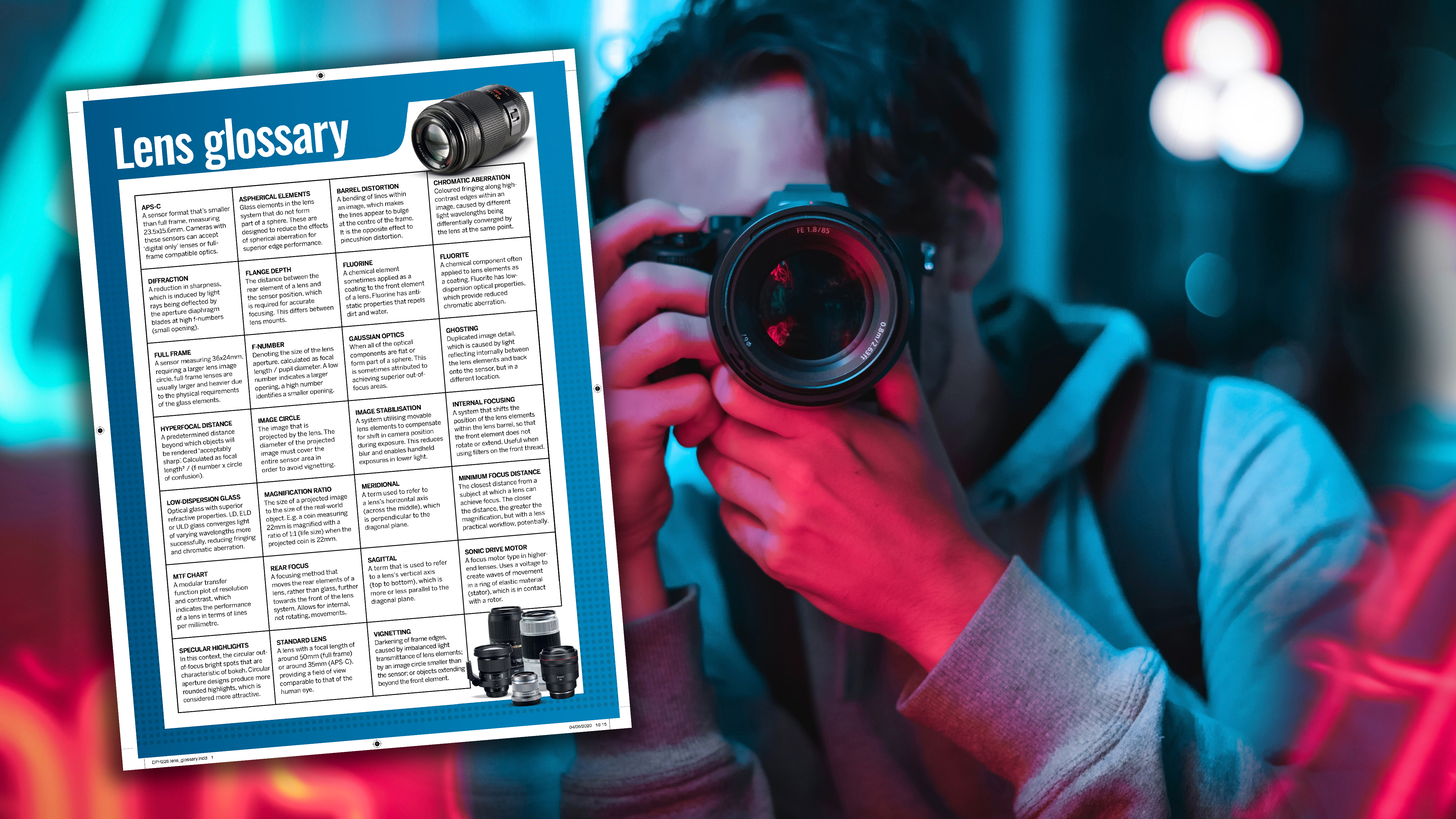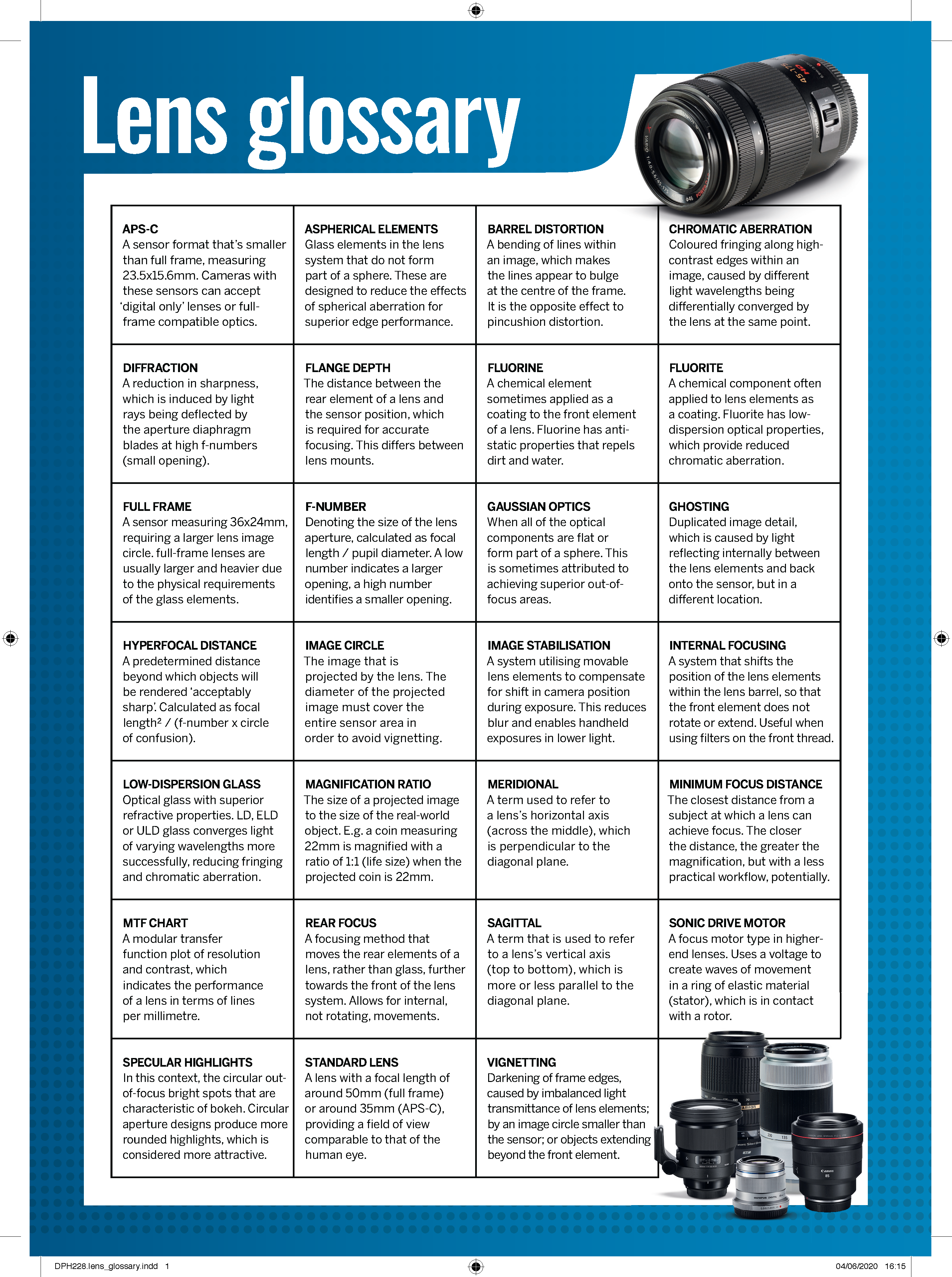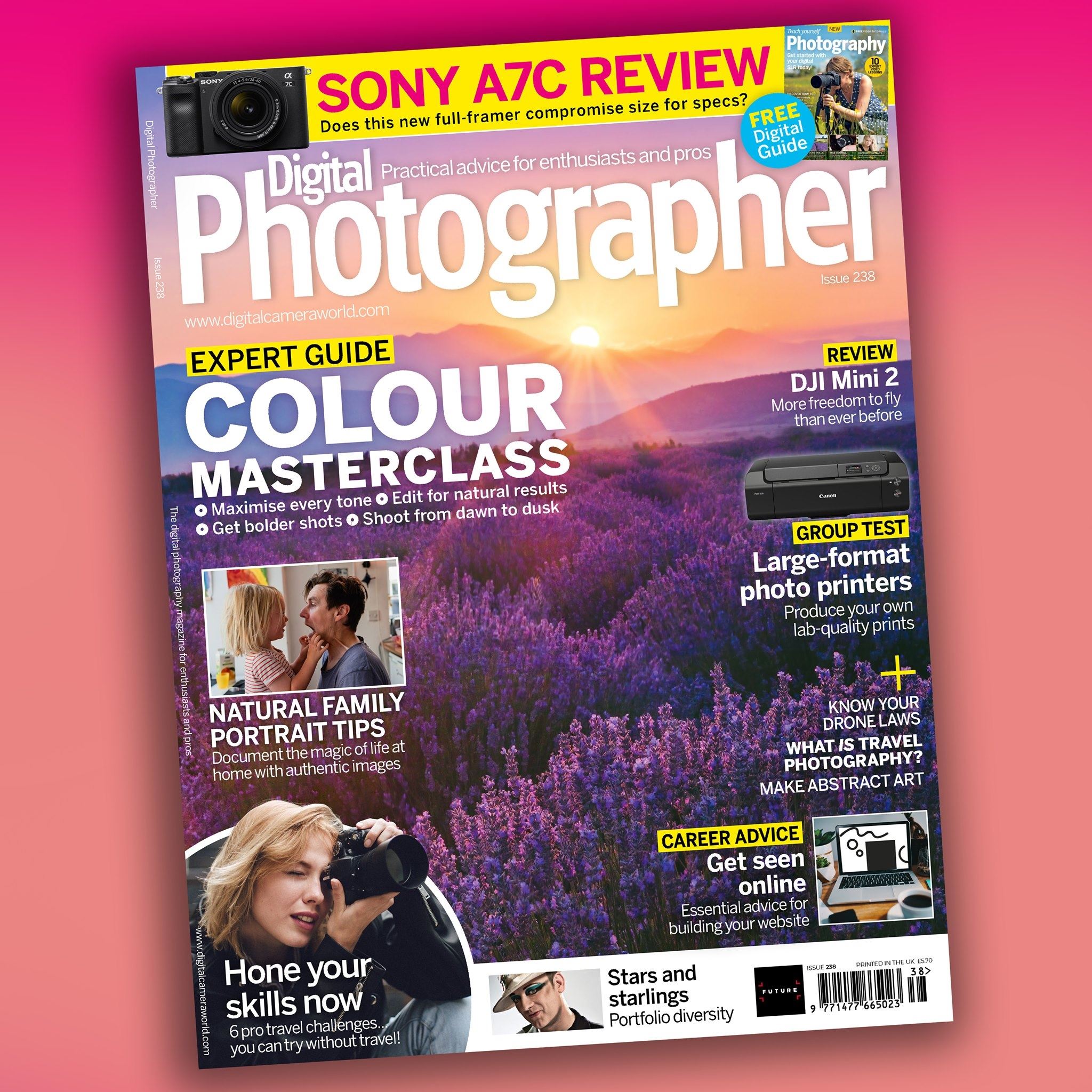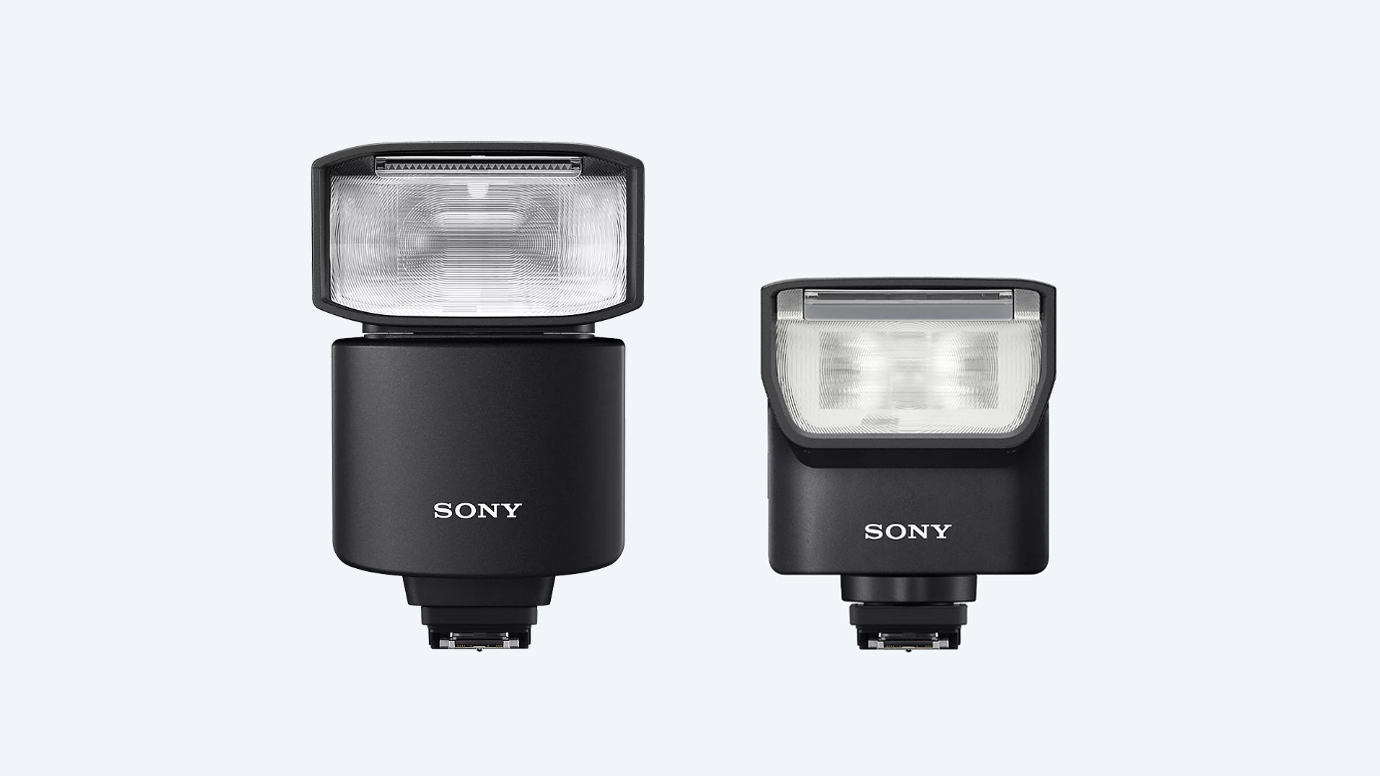Photography cheat sheet: lens glossary
Here's a neat glossary to help you remember what all the technology terms mean when it comes to choosing settings or buying a new lens

There's an amazing range of lenses on the market today, and ever-evolving technology is giving us more compact, clear and affordable optics than ever. But with sometimes comes a little confusion, too.
From the best lenses for landscapes to the best lenses for weddings, the sheer selection can be intimidating. When you're making a buying choice, you need to consider the variety of types, technologies and features available, and to work out what's right for you.
Of course, manufacturers don't always make it easy for us, and lenses tend to be bandied around with a lot of complex terminology. Only with a good knowledge of the lens and of the common pitfalls of the lens type can a photographer make informed decisions about each optic and get the best camera lenses.
Read more: What is image stabilization, and how does it work?
The terminology of lenses is often far from self-explanatory, and is made more confusing by variations between different manufacturers. Modern lenses come armed with a wealth of advanced technology – some software based, some hardware and chemistry related. Each feature is responsible for a small portion of the overall design, which is tailored to produce the optimal sharpness and contrast, with minimal distortion.
Understanding the technology present in a lens is essential for making informed decisions about which models you need in your kitbag.
The glossary sheet below rounds up some common terms used in relation to lenses, and if you don't know your magnification ratio from your MFT, it should help you.

There's nothing groundbreaking in this lens glossary, but it will make hopefully sense of common terms, allowing you to dig further into areas should you need to. Why not save it onto your phone roll and refer back to it later?
Find more about diffraction, aperture and resolution to take your knowledge even further. You might also like the the best lens for portraits, and the best lenses for bird photography and wildlife.
• See full Dictionary of photography terms
Get the Digital Camera World Newsletter
The best camera deals, reviews, product advice, and unmissable photography news, direct to your inbox!
Digital Photographer is the ultimate monthly photography magazine for enthusiasts and pros in today’s digital marketplace.
Every issue readers are treated to interviews with leading expert photographers, cutting-edge imagery, practical shooting advice and the very latest high-end digital news and equipment reviews. The team includes seasoned journalists and passionate photographers such as the Editor Peter Fenech, who are well positioned to bring you authoritative reviews and tutorials on cameras, lenses, lighting, gimbals and more.
Whether you’re a part-time amateur or a full-time pro, Digital Photographer aims to challenge, motivate and inspire you to take your best shot and get the most out of your kit, whether you’re a hobbyist or a seasoned shooter.

